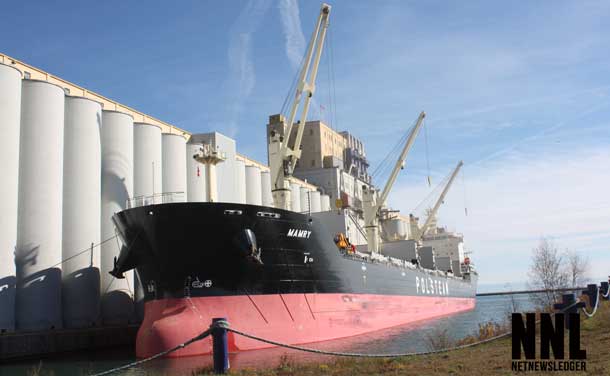
WTO Agreement Good for Business – Ritz
OTTAWA – News -“This agreement will help Canadian farmers and agricultural exporters maximize opportunities in international markets where we have achieved unprecedented access this year,” stated federal Agriculture Minister Gerry Ritz. At the Bali Indonesia World Trade Organization meetings, increased food security and more balanced international trade were two of the topics where agreement was reached. Minister Ritz promised, “This agreement builds on our government’s continued advocacy for a fair and more efficient system of international trade based on predictable rules and sound science..”
The World Trade Organization’s Ninth Ministerial Conference recently concluded in Bali, Indonesia with member countries agreeing on a new trade facilitation agreement (TFA) that will benefit Canadian farmers and agricultural exporters. This TFA represents the WTO’s first multilateral trade agreement to be concluded since the establishment of the WTO in 1995.
Canadian Agriculture Minister, Gerry Ritz who participated in the WTO conference with Minister of International Trade, Ed Fast, is welcoming the benefits and opportunities that the TFA delivers for Canada.
WTO Agreement Specifics
In addition to the TFA, agreement was reached on specific agriculture issues. Ministers re-affirmed the call for the elimination of export subsidies and reduction in maximum repayment periods for export credits. Continued reforms in this area will help level the playing field on world markets for Canada’s agricultural exporters benefiting all Canadian agricultural exports, including beef and pork. The agreement also carries new and stronger disciplines for the administration of tariff quotas that will create new opportunities for Canadian agricultural exporters.
Outcomes in agriculture also address the need for improvements for food security, a matter for which Canada supports an approach that is sustainable and which minimizes trade distortions. Canada also believes that unfettered trade in agricultural products is one of a number of tools available to increase food security.
More broadly, the momentum generated from this positive outcome in Bali is expected to re-invigorate negotiations on meaningful agriculture reform across all three pillars of the Agreement on Agriculture – domestic support, market access and export competition.
Backgrounder
Agricultural Benefits and Next Steps
The Bali package demonstrates the rules-based multilateral trading system remains strong and viable and will benefit the Canadian agricultural sector in a number of ways.
The outcome achieved today re-affirms the call for the elimination of export subsidies and reduction in maximum repayment periods for export credits. The decision will level the playing field on world markets for Canada’s agricultural exporters. The use of export credits in international markets places Canadian agricultural exports, writ large, at a commercial disadvantage. The development of new rules on this type of export financing will benefit all Canadian agricultural exports, including beef and pork.
The administration of tariff quotas will now be subject to a new, more intensive, and structured review to address chronically low import volumes or underfill. We have seen instances of low underfill in wheat, pulses, canola seed and pork. These changes will create new opportunities for Canadian agricultural exporters.
Canada supports the goal of providing food security to vulnerable populations in a manner that is sustainable and which minimizes trade distortions. Canada also believes that unfettered trade in agricultural products is one of a number of tools available to increase food security.
This agreement builds on our government’s aggressive trade agenda of opening markets, such as the EU, while also expanding access as was achieved for Canadian beef in the Japanese market earlier this year.
“Next Steps”
Agriculture
The elements of the Bali package contain built-in next steps related to food security, Tariff Rate Quota (TRQ) administration and export competition. More broadly, Canada hopes the momentum generated from a positive outcome in Bali will help to re-invigorate negotiations on meaningful agriculture reform across all three pillars of the Agreement on Agriculture – domestic support, market access and export competition.
Food Security
The Decision on Public Stockholding for Food Security Purposes sets out a work program to be undertaken in the Committee on Agriculture to continue to discuss this issue with the aim of making recommendations on a permanent solution. Members aim to reach a conclusion no later than the 11th Ministerial Conference (2017), with the General Council to provide a progress report at the 10th Ministerial Conference (2015).
Tariff Rate Quota Administration
Members agreed that a review of the operation of the Decision shall commence no later than four years following its adoption. The objective of this review is to promote a continuing process of improvement in the utilization of tariff rate quotas. The General Council shall make recommendations to the 12th Ministerial Conference (2019). In the event the 12th Ministerial Conference does not take place by 31 December 2019, the General Council will take decisions on the recommendations arising from the review no later than 31 December 2019 unless Members agree otherwise.
Export Competition
Members supported a political declaration on Export Competition, agreeing to hold dedicated discussions on an annual basis in the Committee on Agriculture to examine developments on the issue. Members also agreed to review the situation at the 10th Ministerial Conference (2015).







